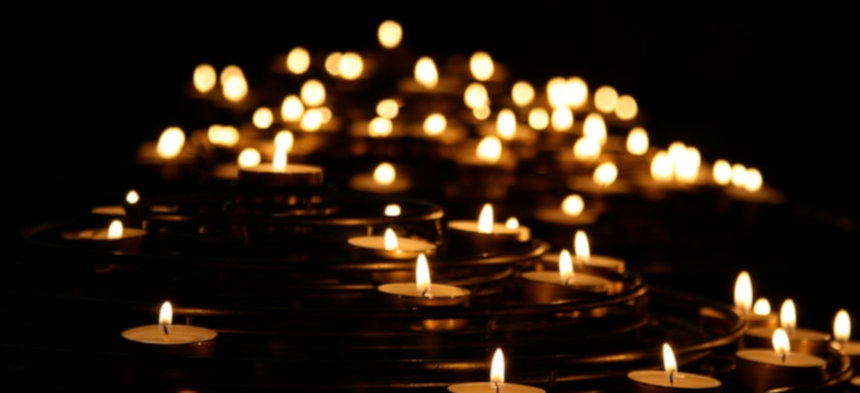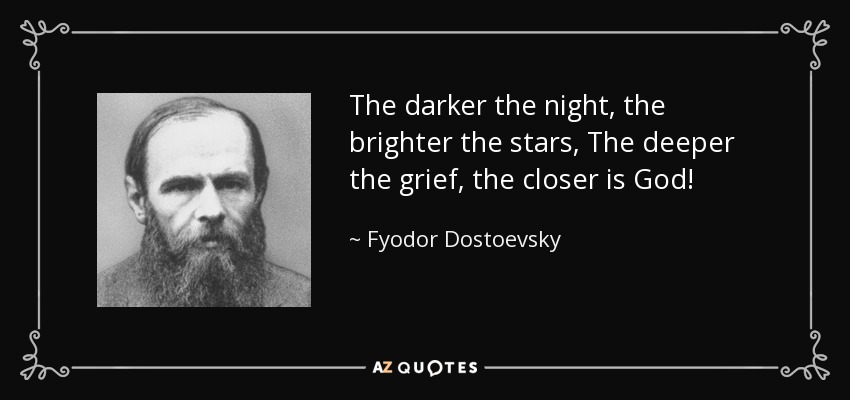Links zum Thema Trauer / Sadness and grief
Literatur
- Romano Guardini (1885-1968) italienischer katholischer Religionsphilosoph, Theologe, Autor, Essay Vom Sinn der Schwer-
mut, 1928, Vom Sinn der Schwermut, Topos Plus, Kevelaer, Taschenbuchausgabe 1. September 2008, 10. Auflage 2010,
12. Auflage 2017
- Yorick Spiegel (1935-2010) deutscher evangelischer Theologe, Autor, Der Prozeß des Trauerns. Analyse und Beratung, Gütersloher Verlagshaus, Gütersloh, 1973, 8. Auflage 1995
- Verena Kast (*1943) Schweizer Professorin für Psychologie, Universität Zürich, Dozentin und Lehranalytikerin, C. G. Jung-
Institut, Zürich, Trauern. Phasen und Chancen des psychischen Prozesses, Kreuz-Verlag, 23. Auflage 1. Januar 2001
- Dr. phil. Jorgos Canacakis (1935-2024) griechischer Diplompsychologe, Psychotherapeut, Buchautor, Ich sehe deine Tränen,
Kreuz-Verlag, 2002
- Sabine Bode (*1947) deutsche freiberufliche Journalistin, Buchautorin, Fritz Roth (1949-2012) deutscher Bestattungs-
unternehmer, Trauerbegleiter, Autor, Trauer hat viele Farben, Ehrenwirth Verlag, Bergisch Gladbach, 2004, Bastei Lübbe,
2. Auflage 30. Dezember 2009
- Roland Kachler (*1955) deutscher Diplompsychologe, psychologischer Psychotherapeut, Trauerbegleiter, evangelischer Theologe, Autor, Meine Trauer wird dich finden. Ein neuer Ansatz in der Trauerarbeit, Kreuz Verlag, 13. Auflage 9. Septem-
ber 2005
- Petra Franziska Killinger, Schmetterlingsflüstern. Botschaften einer Kinderseele, Kösel-Verlag, München, 2. Auflage 15. Sep-
tember 2005
- Johann-Christoph Student, Herausgeber, Sterben, Tod und Trauer. Handbuch für Begleitende, Herder, Freiburg im Breisgau,
2. Auflage 2006
- Fritz Roth (1949-2012) deutscher Bestattungsunternehmer, Trauerbegleiter, hier: Herausgeber, Autor, Einmal Jenseits und zurück. Ein Koffer für die letzte Reise, Gütersloher Verlagshaus, 6. Auflage 12. Juni 2006
- Sabine Bode (*1947) deutsche freiberufliche Journalistin, Buchautorin, Fritz Roth (1949-2012) deutscher Bestattungsunternehmer, Trauerbegleiter, Autor, Trauer ist Liebe. Was menschliche Trauer wirklich braucht, Gütersloher Verlagshaus, Gütersloh, 11. September 2006
- Roland Kachler (*1955) deutscher Diplompsychologe, psychologischer Psychotherapeut, Trauerbegleiter, evangelischer Theologe, Autor, Damit aus meiner Trauer Liebe wird. Neue Wege in der Trauerarbeit, Kreuz Verlag, 4. Taschenbuchauf-
lage 18. September 2007
- Roland Kachler (*1955) deutscher Diplompsychologe, psychologischer Psychotherapeut, Trauerbegleiter, evangelischer Theologe, Autor, Was bei Trauer gut tut, Verlag Herder, 3. Taschenbuchauflage 9. August 2011
- Jörg Zink (1922-2016) deutscher evangelischer Theologe, Pfarrer, Sprecher der Friedens- und Ökologiebewegung, Publizist, Trauer hat heilende Kraft, Kreuz Verlag, 1. Auflage 10. Februar 2015
- Jorge Bucay (*1949) argentinischer Psychiater, Gestalttherapeut, Autor, Das Buch der Trauer. Wege aus Schmerz und Ver-
lust, Fischer Taschenbuch, 3. Auflage 23. Juli 2015
- Sabine Bode (*1947) deutsche freiberufliche Journalistin, Buchautorin, David Roth, deutscher Trauerbegleiter, Autor, Das
letzte Hemd hat viele Farben. Für einen lebendigen Umgang mit dem Sterben, Bastei Lübbe, 2. Auflage 23. Februar 2018
↑
Literature (engl.)
- Pauline Boss, Ph.D., Swiss-American sociologist, emeritus professor of medicine and psychiatry, University of Wisconsin,
author, Ambiguous Loss. Learning to Live with Unresolved Grief, Harvard University Press, 1st edition 2. October 2000
- George A. Bonanno, Ph.D., US American professor of clinical psychology, Teachers College, Columbia University, trauma researcher, author, The Other Side of Sadness. What the New Science of Bereavement Tells Us About Life After Loss, Basic Books, 1st edition 28. December 2010
- Mirabai Starr, US American teacher of philosophy, bereavement counselor, translator of sacred literature, author, Caravan of
No Despair. A Memoir of Loss and Transformation, Sounds True, paperback issue 1. November 2015
↑
Externe Weblinks
- Artikel Trauerphasen nach Verena Kast, präsentiert von der Publikation Die Johanniter, undatiert
1. Trauerphase: Nicht-Wahrhaben-Wollen
2. Trauerphase: Aufbrechende Emotionen
3. Trauerphase: Suchen und Sich-Trennen
4. Trauerphase: Neuer Selbst- und Weltbezug
Siehe auch: Video Die vier Phasen der Trauer, präsentiert von dem deutschen öffentlich-rechtlichen Fernsehsender ARD, WDR,
1:49 Minuten Dauer, verfügbar in der WDR Mediathek bis 17. Februar 2021
- Artikel [Induced After-Death Communication (IADC/EMDR)] Induzierte-Nach-Tod-Kommunikation (INTK) mit Verstorbenen, seit 1995 angewandte grenzüberschreitende Trauer-Therapie des US-amerikanischen klinischen Psychologen Dr. Allan Botkin, prä-
sentiert von der deutschen grenzwissenschaftlichen Zeitschrift NEXUS Magazin, Michael E. Tymn, Heft 8, Dezember 2006/Ja-
nuar 2007
- Article Elizabeth Gilbert on Love, Loss, and How to Move Through Grief as Grief Moves Through You, presented by the free weekly digest Brain Pickings, host Maria Popova (*1984) Bulgarian critic, blogger, writer, 17. October 2018
- Beitrag Welche Möglichkeiten gibt es, mit Trauer umzugehen?, Referenz zu Buckminster Fuller, präsentiert von der kaliforni-
schen Frage-und-Antwort Webseite Quora, Elfriede Ammann, 175 Aufrufe · 3 Likes, 13. August 2019
↑
External web links (engl.)
- Article The Mourner’s Bill of Rights, presented by Healgrief.org, Alan D. Wolfelt, Ph.D., undated
1. You have the right to experience your own unique grief.
2. You have the right to talk about your grief.
3. You have the right to feel a multitude of emotions.
4. You have the right to be tolerant of your physical and emotional limits.
5. You have the right to experience “grief bursts.”
6. You have the right to make use of ritual.
7. You have the right to embrace your spirituality.
8. You have the right to search for meaning.
9. You have the right to treasure your memories.
10. You have the right to move toward your grief and heal.
↑
Audio- und Videolinks
Audio and video links (engl.)
Human beings coping with loss, trauma and other forms of extreme adversity
"There isn't one thing that predicts resilience. It's not two things. It is not necessarily in us."
- Audio interview with Francis Weller, US American psychotherapist, soul activist, writer, Francis Weller: Five Gates of Grief (2013), sponsored by 2013 Minnesota Men's Conference, YouTube film, 56:53 minutes duration, posted 4. November 2013
- Video interview with Francis Weller, US American psychotherapist, soul activist, writer, Francis Weller on Grief (2013), sponsored by the Minnesota Men's Conference, 2013, YouTube film, 13:50 minutes duration, posted 29. January 2014
- Video presentation by Gabor Maté, M.D. drgabormate.com (*1944) Hungarian-Canadian physician, addiction expert, speaker, author, The Biology of Loss and Recovery, presented on the Stress Resilience Conference, sponsored by the Niroga Institute, Oakland, California, 14. August 2015, YouTube film, 1:05:16 duration, posted 15. May 2016
- Video interview with Dr. Allan Botkin, Psy.D., US American clinical psychologist, developer of the "Induced After-Death Com-
munication" (IADC) method, Latest Breakthrough In Contacting The Departed – Induced After Death Communication, presen-
ted by the Afterlife TV, host Bob Olson, YouTube film, 1:03:14 minutes duration, posted 29. October 2015
- Video The New World | The Lost Art of Grief, YouTube film, 8:16 minutes duration, posted 29. September 2017
- Audio interview with Pauline Boss, Ph.D., Swiss-American sociologist, emeritus professor of medicine and psychiatry, Univer-
sity of Wisconsin, author, Transcript for Pauline Boss – The Myth of Closure, presented by the American Public Media and Templeton Foundation, radio program On Being, founder and host Krista Tippett (*1960) US American entrepreneur, jour-
nalist, author, 51:57 minutes duration, published 13. December 2018
Exploring complicated grief, the myth of closure, and learning to hold the losses in our midst
Linkless media offering
↑
Movie and documentary links
- Animated and narrated lesson A brief history of melancholy, presented by TED-Ed, educator Courtney Stephens, animator Sharon Colman Graham, YouTube film, 5:28 minutes duration, posted 2. October 2014
- Canadian documentary on terminal care featuring Stephen Jenkinson, MTS, MSW, Canadian theologian, storyteller, spiritual activist, farmer, founder of the Orphan Wisdom School, griefwalker, teacher, author, GRIEFWALKER, directed by Tim Wilson, produced by National Film Board of Canada, presented by Culture Unplugged, 70:09 duration, 2008
↑
|






